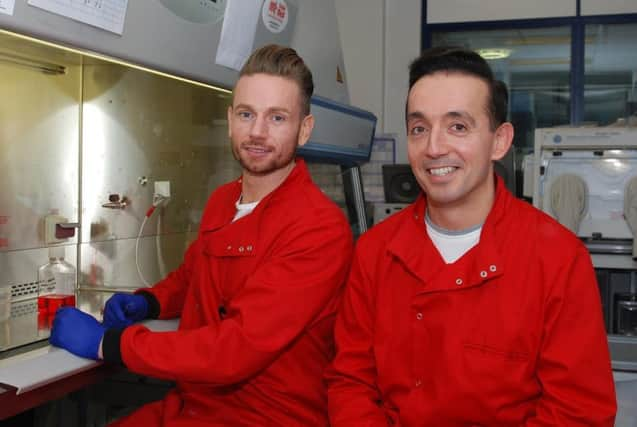Huddersfield discovery could help transform treatment for cancer


The discovery opens up the potential for highly effective new cancer treatments which are free of serious side effects.
Now the research team headed by Dr Nikolaos Georgopoulos has developed a treatment regime that exploits the unique properties of the molecule – a protein named Cluster of Differentiation 40 (CD40).
The next phase is to secure funding for clinical trials.
Advertisement
Hide AdAdvertisement
Hide AdDr Georgopoulos said: “In 2002, we first reported that this particular member of the TNF receptor family is unique.
“A lot of members of this family are very good at triggering cell death. But the molecule CD40 is special. It seems to specifically kill tumour cells, but when you activate it on normal cells, they don’t die.”
It was vital to understand these remarkable properties of CD40, with their immense potential for cancer therapy. Years of investigation began to unlock the mystery.
Dr Georgopoulos is a specialist in cancer research and he has been investigating CD40 for almost 16 years. “Cancer therapies, such as chemotherapy and radiotherapy, are ‘hit with a hammer’ approaches. Hit as hard as you can and kill the tumours as well as you can. But there is usually some collateral damage. There are side effects,” he said.
Advertisement
Hide AdAdvertisement
Hide Ad“We knew this CD40 molecule seemed to be very good at killing tumour cells. So we decided to observe what it does at the molecular level. If we understand what it does and what’s so special about it, we can design our own way to kill tumours. We have now identified exactly why this molecule can kill tumour cells and why it leaves normal cells unaffected.”
Dr Georgopoulos and his co-researchers made this discovery because instead of working purely with tumour cells, they were able to make comparisons with the effects of CD40 on normal cells as well as engineered – para-malignant – cells that allowed them to mimic the process of carcinogenesis – cancer development.
Advanced discussions are being held with a company that specialises in early-stage development of innovative cancer therapies. It is hoped to secure about £900,000 funding for clinical trials that would see colorectal cancer patients receiving the new treatment. The trials could start as early as the end of this year.